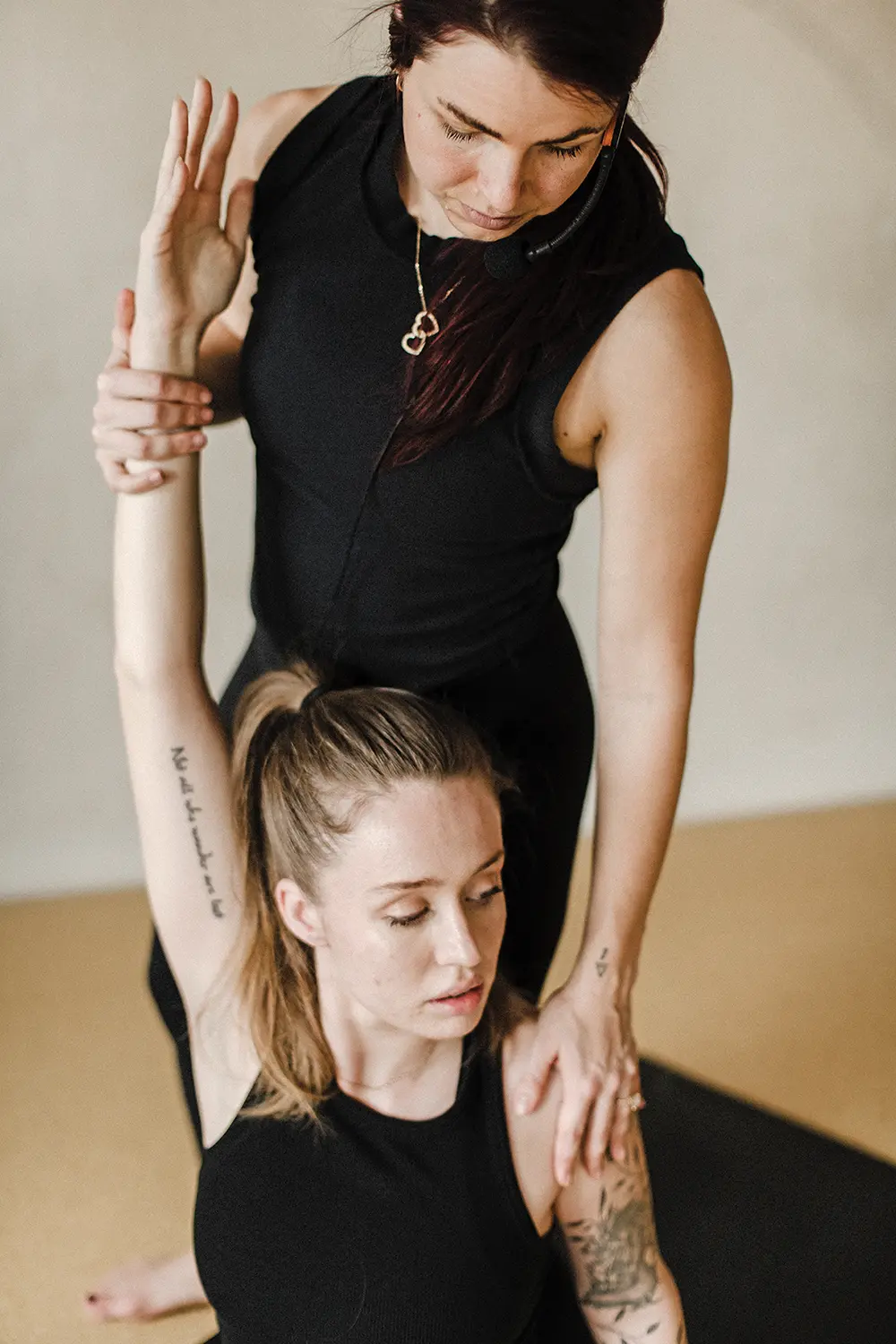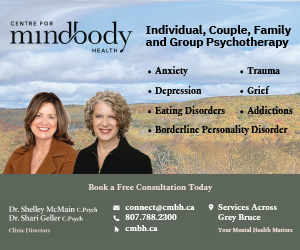From mindset coaching to potluck dinners, fitness spaces are expanding their offerings for changing times.
by Jessica Wortsman // Photography by Jessica Crandlemire
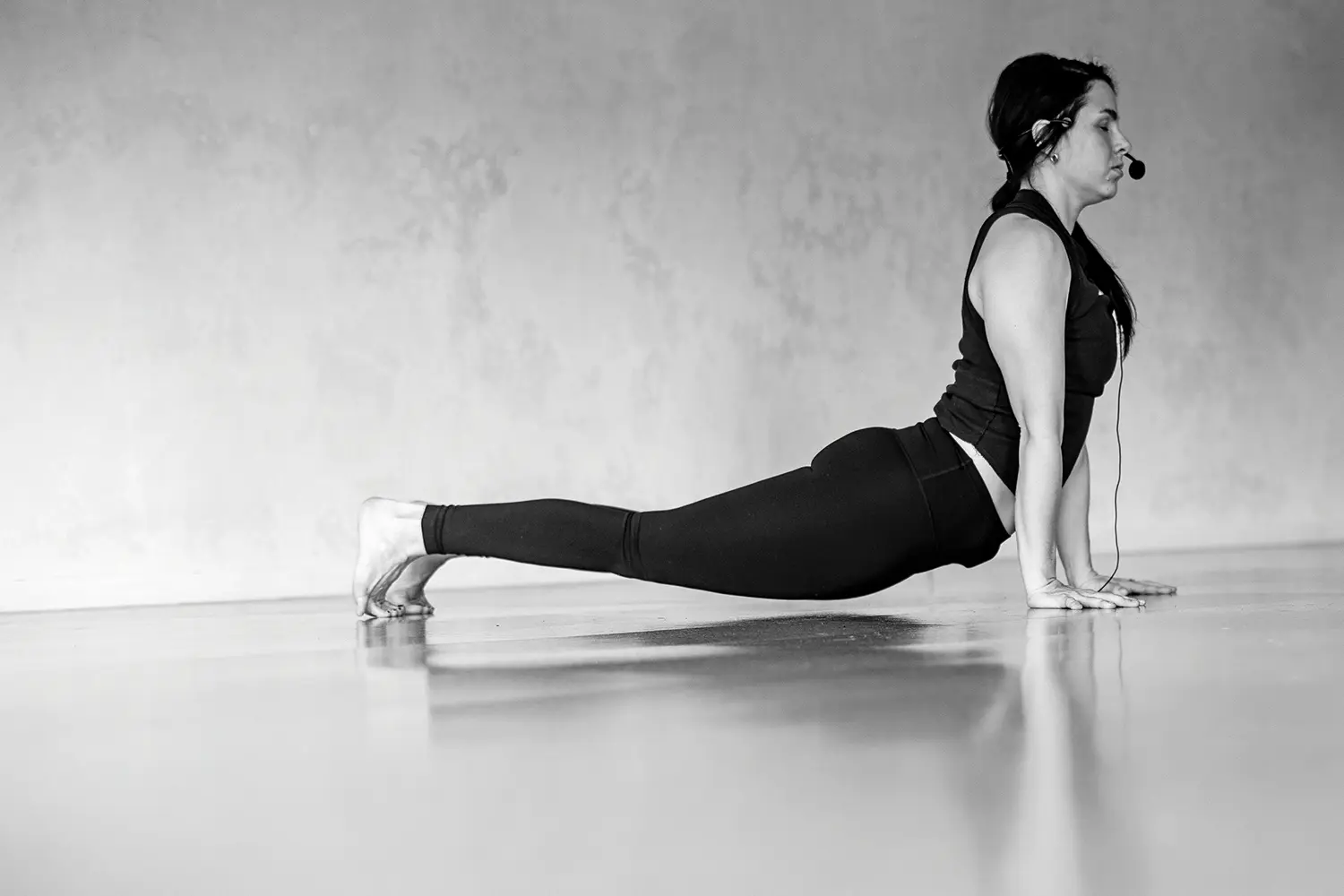
There are many reasons we exercise but it’s probably fair to say most of us do it to stay healthy, mobile, and to feel a little better about how we look naked. Increasingly though, and especially since the pandemic, people are heading back into fitness spaces looking to build more than just muscle. They’re looking for spaces that also foster community along with mental and emotional well-being. They’re looking for whole-person care and it’s an approach that’s gaining traction in other sectors too, like healthcare and business.
This more expansive approach to fitness makes sense, given the symbiotic relationship between mental and physical health. Increased health in one area leads to increased health in the other. Add to that a confluence of other factors, like the pandemic’s financial blow to the fitness industry and the surge of at-home workout options, and it’s no wonder fitness spaces have had to evolve in order to survive and serve their clients’ more holistic needs.
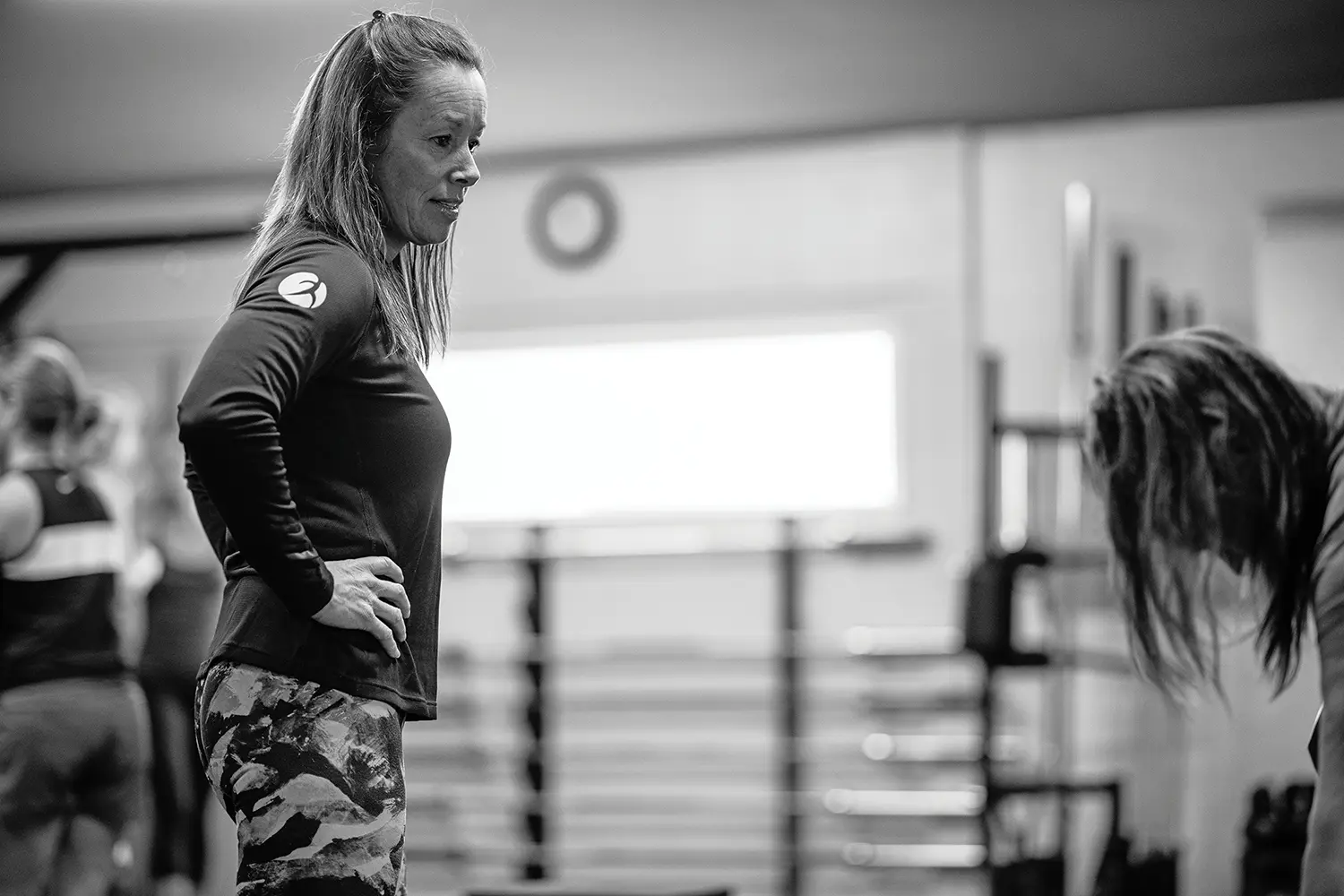
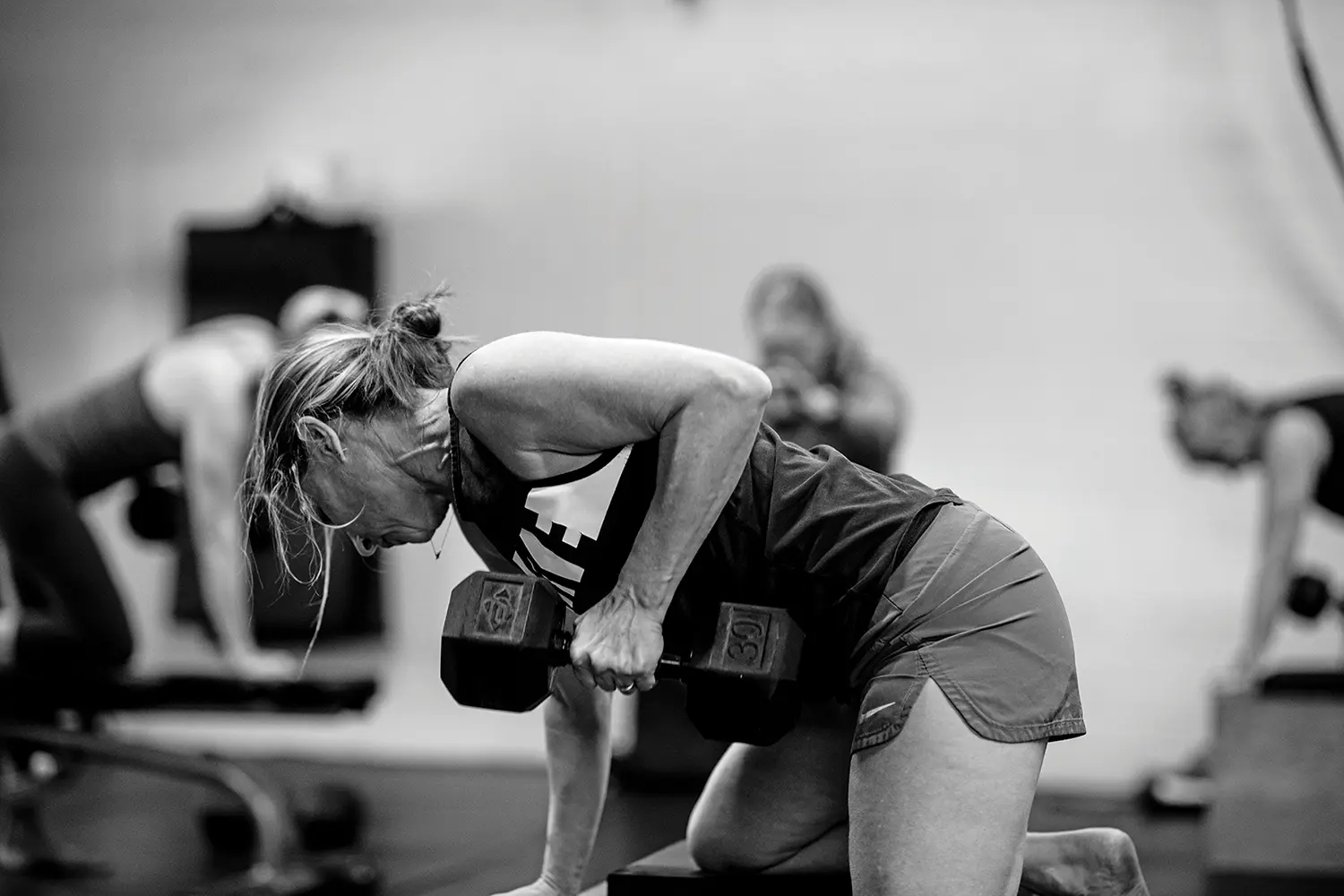
“I think we’ve always been ahead of the curve with regards to the holistic piece because that’s my personal philosophy.”
Sarah Applegarth, Active Life Conditioning
Evolution and integration
Sarah Applegarth, co-owner of Active Life Conditioning in Collingwood, has seen her fitness business evolve over the 23 years since she first started out exclusively training young athletes. Now, her integrated training center offers a variety of strength training classes for youth and adults of all fitness levels, personal training, Pilates and yoga, along with a team of in-house physiotherapists, chiropractors, nutritionists and even a mental performance coach, not to mention a popular summer camp for kids.
“I think we’ve always been ahead of the curve with regards to the holistic piece because that’s my personal philosophy,” says Applegarth.
Recently, Applegarth again expanded her programming. After her own struggle with perimenopause, Applegarth decided to create a program specifically for women in midlife—one that would help them strengthen their perhaps suddenly unfamiliar bodies but that also provided them with a holistic program to manage this phase of hormone health.
The AL 2.0 program combines the unambiguously titled “Lift Heavy Shit” class, designed to combat muscle mass loss due to depleting estrogen levels, along with a range of educational workshops. Guest speakers have included a sleep specialist, a naturopath and a pelvic health practitioner, among others.
Applegarth really had no idea how the program would be received but it sold out immediately and has continued to grow.
“I was excited about a program that would consider the needs of my body at this point in my life,” explains AL 2.0 participant Dawn Santone, who says the workshops have helped her better understand her body. “It has since changed to be more about the community of women, and I have developed a love for lifting.”
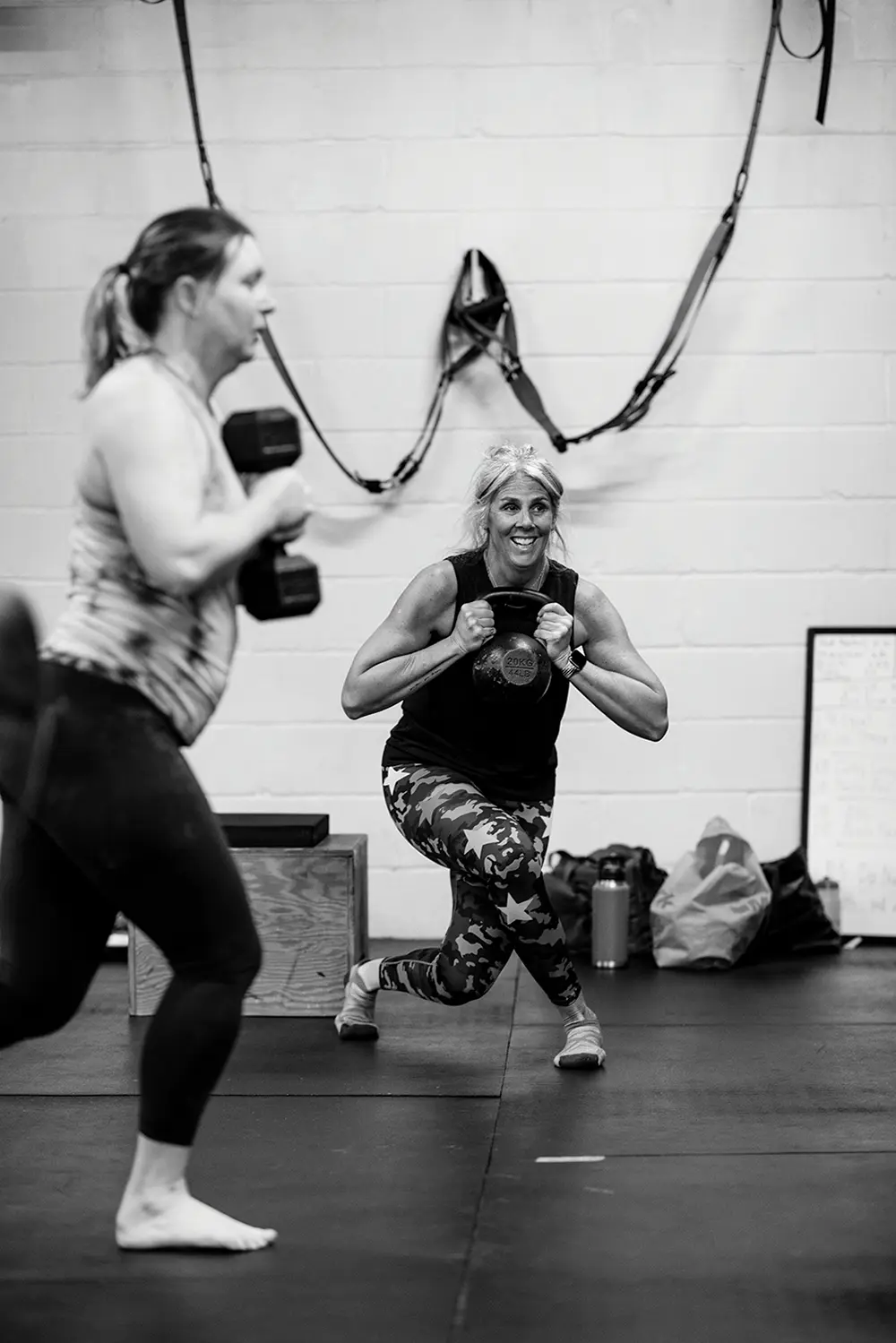
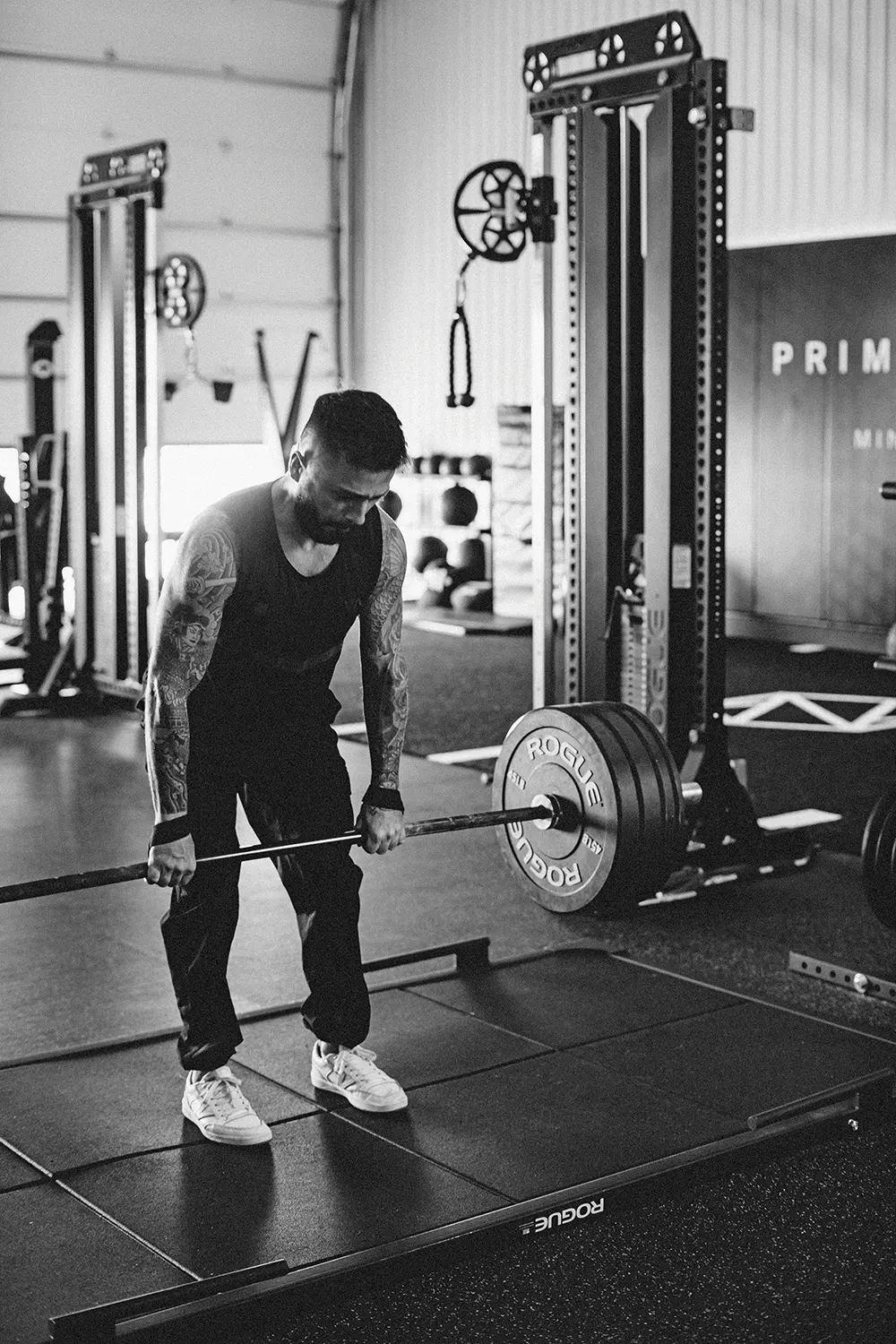
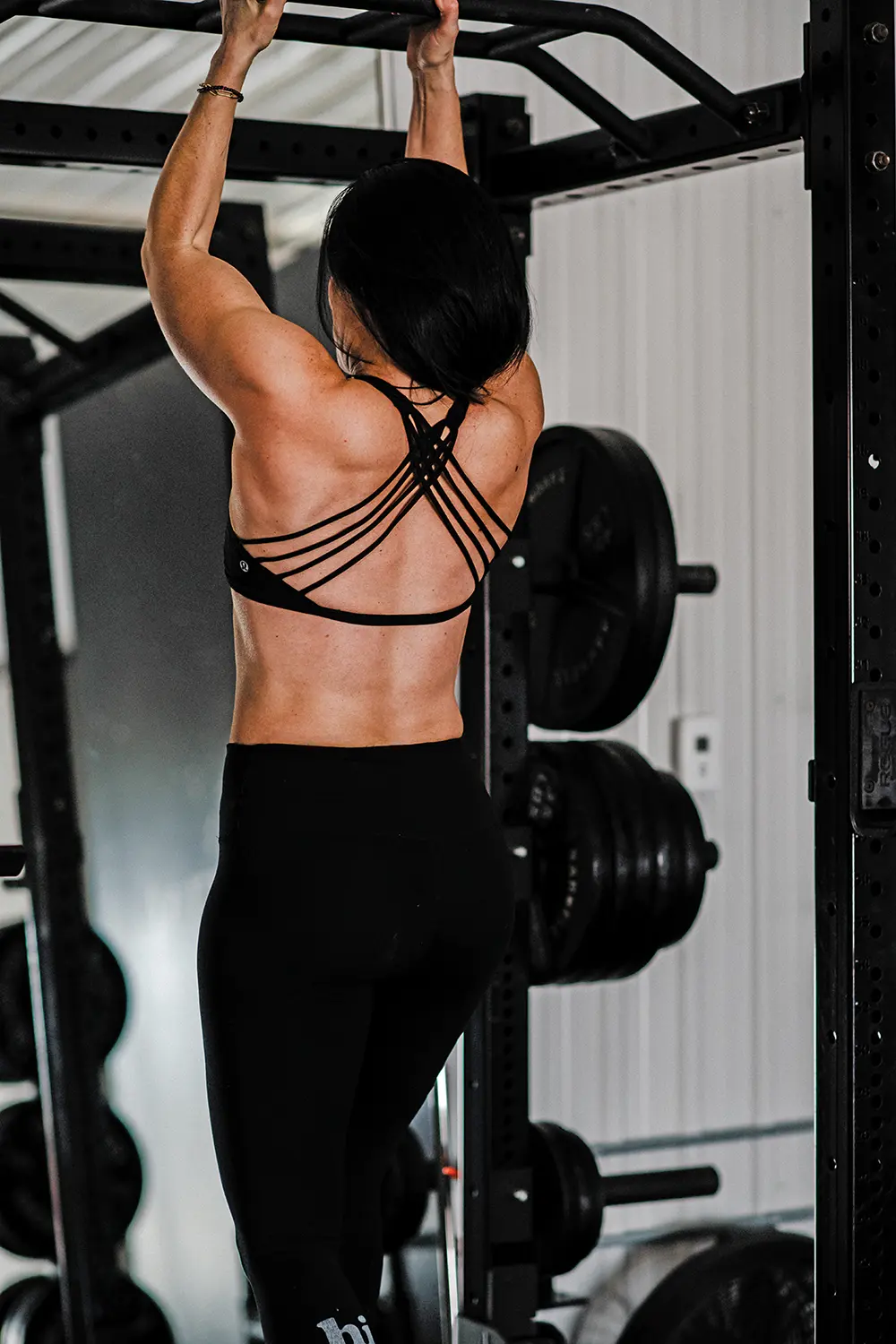
“I started to get really strong. That was really exciting for me. It also had huge benefits to me emotionally and psychologically.”
Jessica Crandlemire, Primitive Patterns client
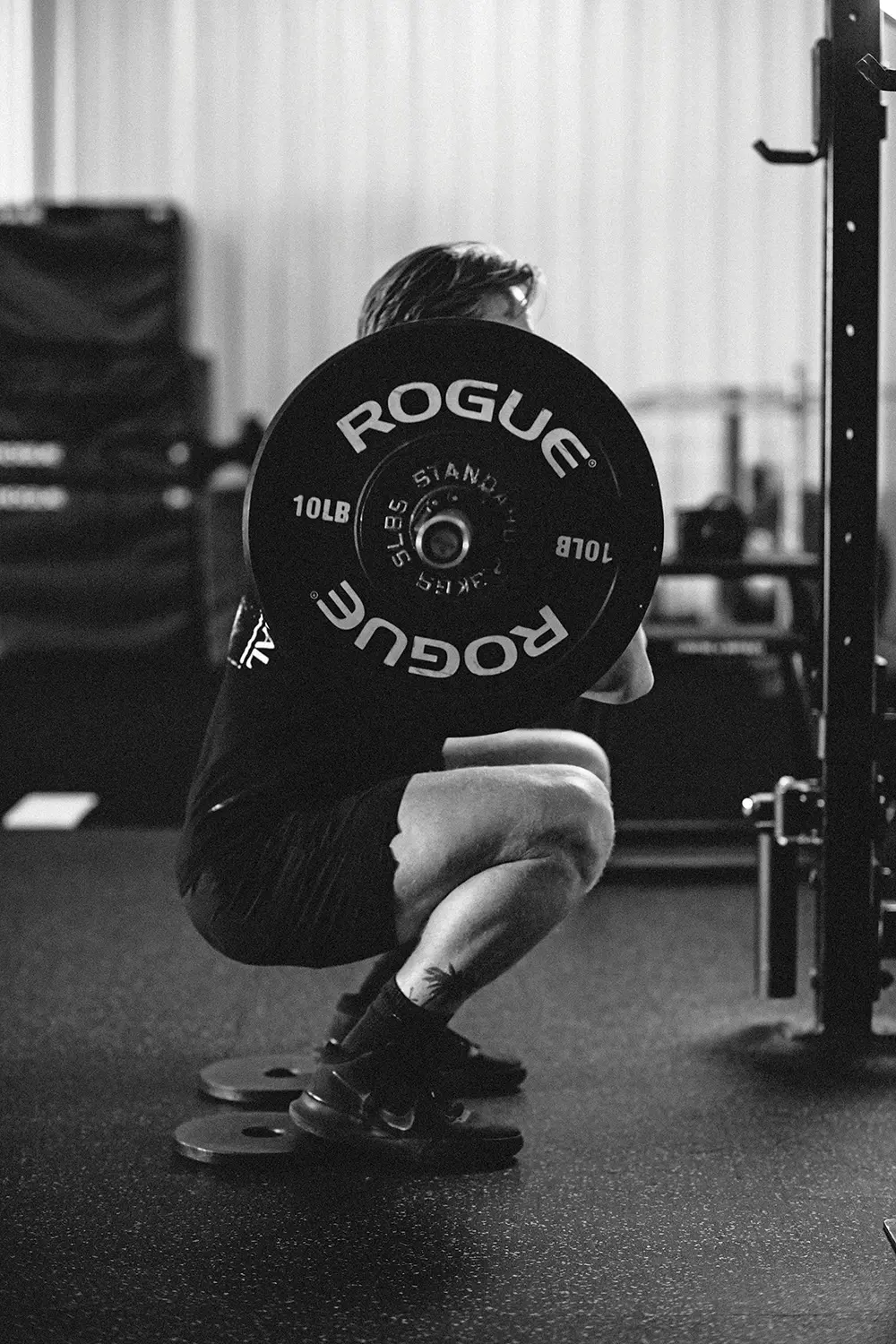
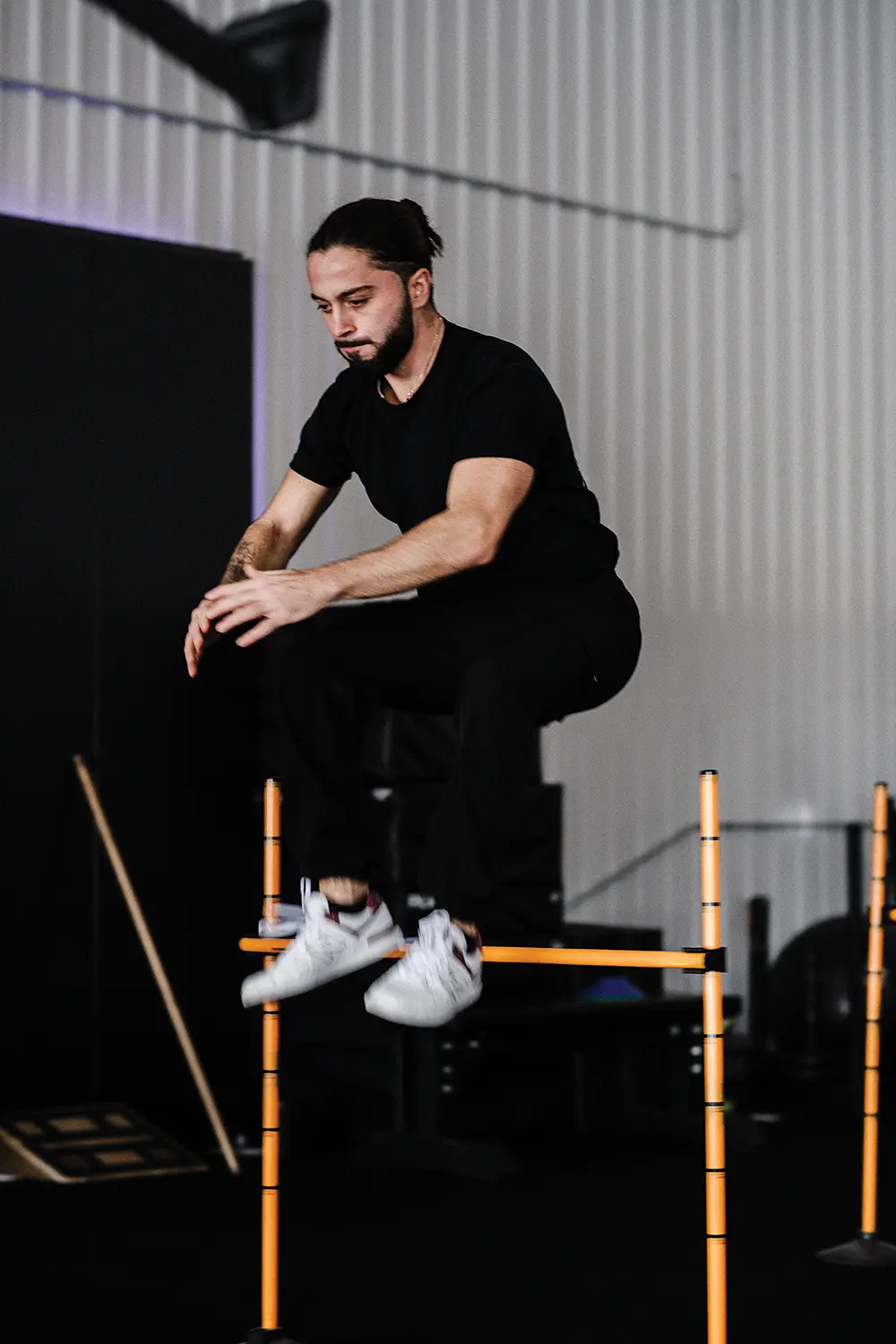
Gateway to a better life
For the guys behind Collingwood’s personal training studio Primitive Patterns, getting fit is about much more than getting jacked. Even their slogan “Expanding Human Potential” hints at the more expansive scope of their work.
“Becoming mentally and physically fit is about so much more than the aesthetic,” says Lukas Burella, who co-own the studio along with his twin brothers Josh and Jacob. “It’s about what you can become and about parts of yourself that you can meet that you maybe didn’t know existed.”
If that sounds a little like surfer wisdom, that’s because it is. Despite their line of work, these are not your typical gym bros. Time spent living on a remote beach in Nicaragua was transformative for them and sparked the idea for their business. “We just realized living such a simple life out there,” says Burella, “that your mental health, your physical health, your connection to nature, and your connection to a community of people, are vital for health.”
They now share this philosophy with their roster of local clients. Training sessions blend principles of bodybuilding, calisthenics and cross training, but also include breathwork and guidance on nutrition and mindset.
It’s this holistic approach that hooked Primitive Patterns client and On The Bay contributing photographer Jessica Crandlemire. “They try really hard to incorporate mindset and mental health into everything that they do,” she says.
A long-time fan of more playful forms of fitness, like aerial silks and pole, Crandlemire admits that this type of workout was a departure for her but very quickly saw positive changes. “I started to get really strong. That was really exciting for me. It also had huge benefits to me emotionally and psychologically.”
For those interested in expanding their potential a little further, Primitive Patterns also runs retreats, described as “mind, body, universe experiences,” in exotic locations like Guatemala. Between daily workouts, yoga, meditation, surf lessons and stargazing, participants are offered plenty of opportunities for their own transformative journeys.
For Burella, it’s simple. He sees improved physical health as a gateway to a better overall life.
The more fit you are, he explains, the more you are likely to want to adventure, to have happier relationships, and to be more open to learning and to putting yourself out there.
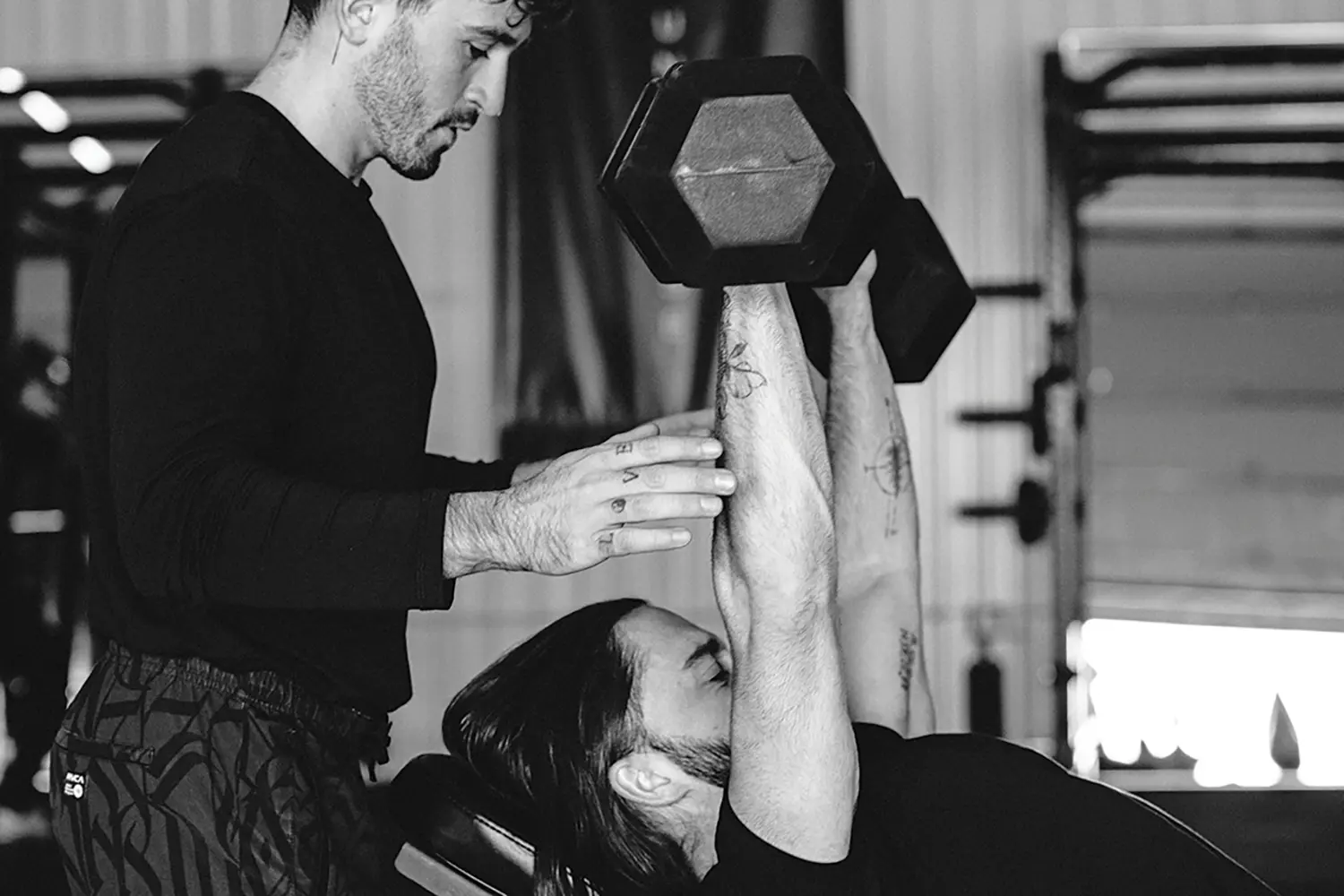
“Your mental health, your physical health, your connection to nature, and your connection to a community of people, are vital for health.”
Lukas Burella, Primitive Patterns
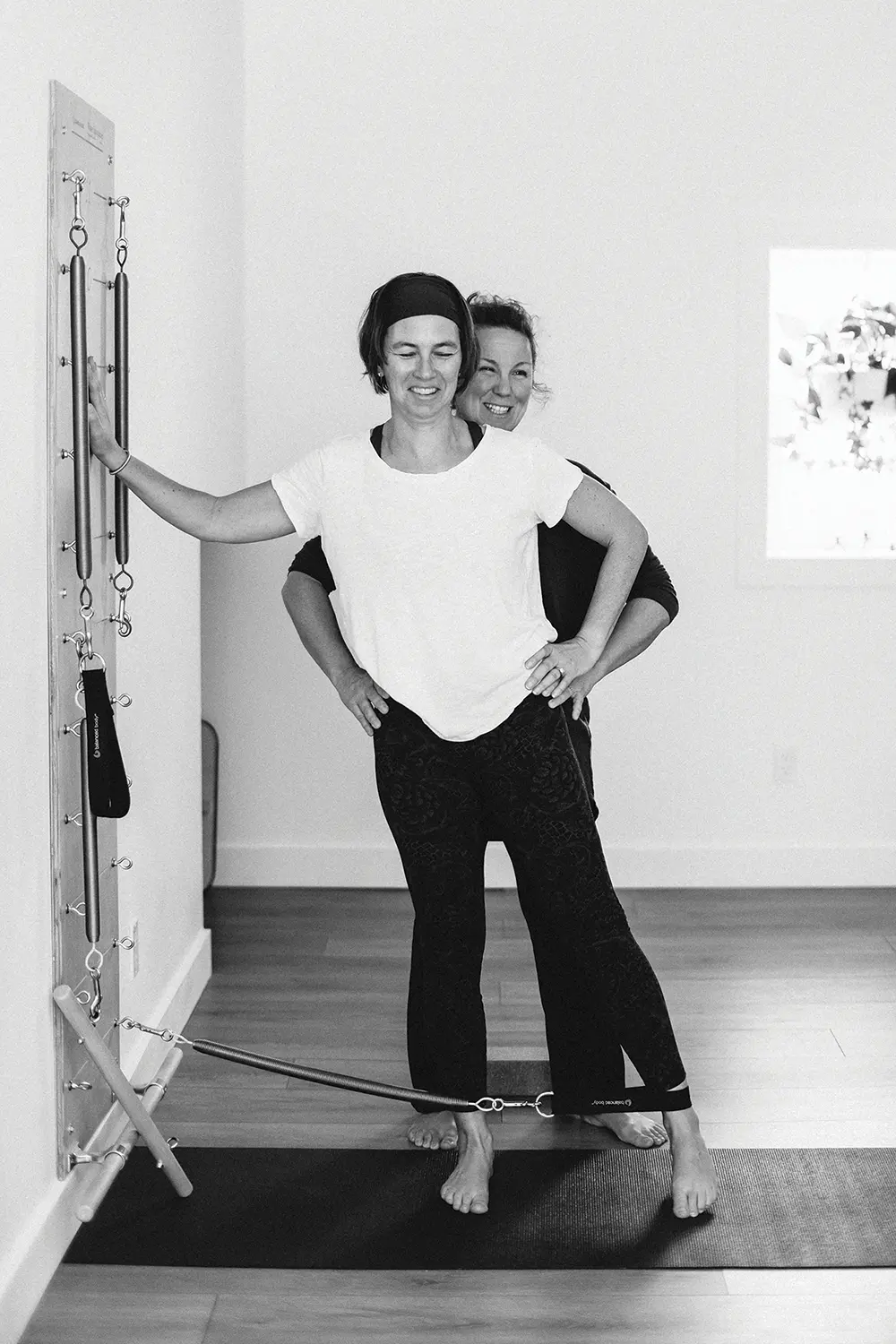
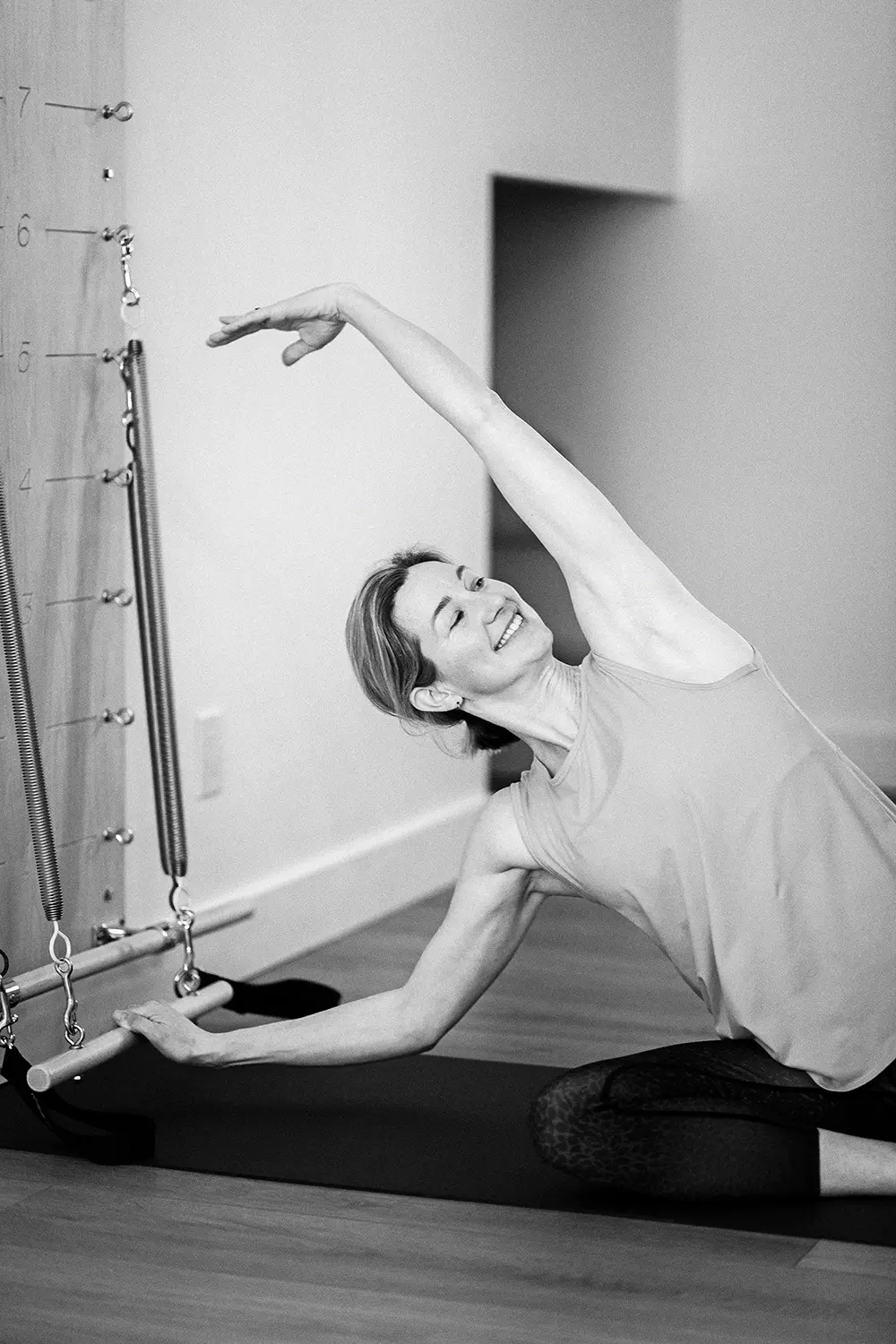
Adapt or die
It’s impossible to talk about the evolution of gyms without mentioning the particularly hard hit they took during the pandemic. Through shutdowns and restrictions, many in the industry were forced to pivot to income streams that were both new and unregulated. Instructors suddenly found themselves broadcasting their classes to a sea of little black squares on a screen, while negotiating the finer points of copyright and residuals with studio owners off-camera. Even now, with an abundance of at-home workout options, such as subscription-based streaming programs, Peloton bikes, even free YouTube content, fitness entrepreneurs who haven’t already shuttered their businesses have been forced to get creative.
“It’s adapt or die, right now. Traditional structures aren’t having as much success, and they’ve had to pivot,” says Melissa Enfield, a veteran yoga, Pilates and barre class instructor of 25 years.
According to Enfield, the future of group fitness is uncertain. Citing the exorbitant cost of local real estate along with growing client expectations for costly amenities and services such as online booking software, high-end interior design and branded retail offerings, many fitness business owners are struggling to make a living.
It’s been a particularly tough go for group class instructors. As Enfield explains it, studios are dependent on group classes for revenue. Dollars are counted by butts on mats, from which instructors are paid their cut. Whereas gyms, albeit with higher overhead costs, don’t depend on only one stream of revenue (they’ve got individual memberships, group classes, personal training), which gives them more resiliency.
That’s why, last April, Enfield founded The Schoolhouse—a Collingwood rental facility specifically for movement and wellness instructors. Eschewing the frills of traditional studios, The Schoolhouse provides instructors with an affordable, clean and functional space to conduct their classes and, in return, leaves promotion and client management in their hands. By prioritizing affordability, the result is a win-win for both instructor and client.
It’s a revolutionary concept in fitness entrepreneurship. The goal, says Enfield, is to provide group class instructors with the opportunity for autonomy and sustainability. “It’s just getting people used to this kind of system and making both the client and the instructor see the benefit and the potential of it.” The potential, she believes, is a thriving community of businesses, where a collective of experts both help and learn from one another.
“It is a hustle,” says Enfield, speaking of group fitness classes. “We are the original gig economy. And if you’re going to hustle, you might as well hustle for yourself.”
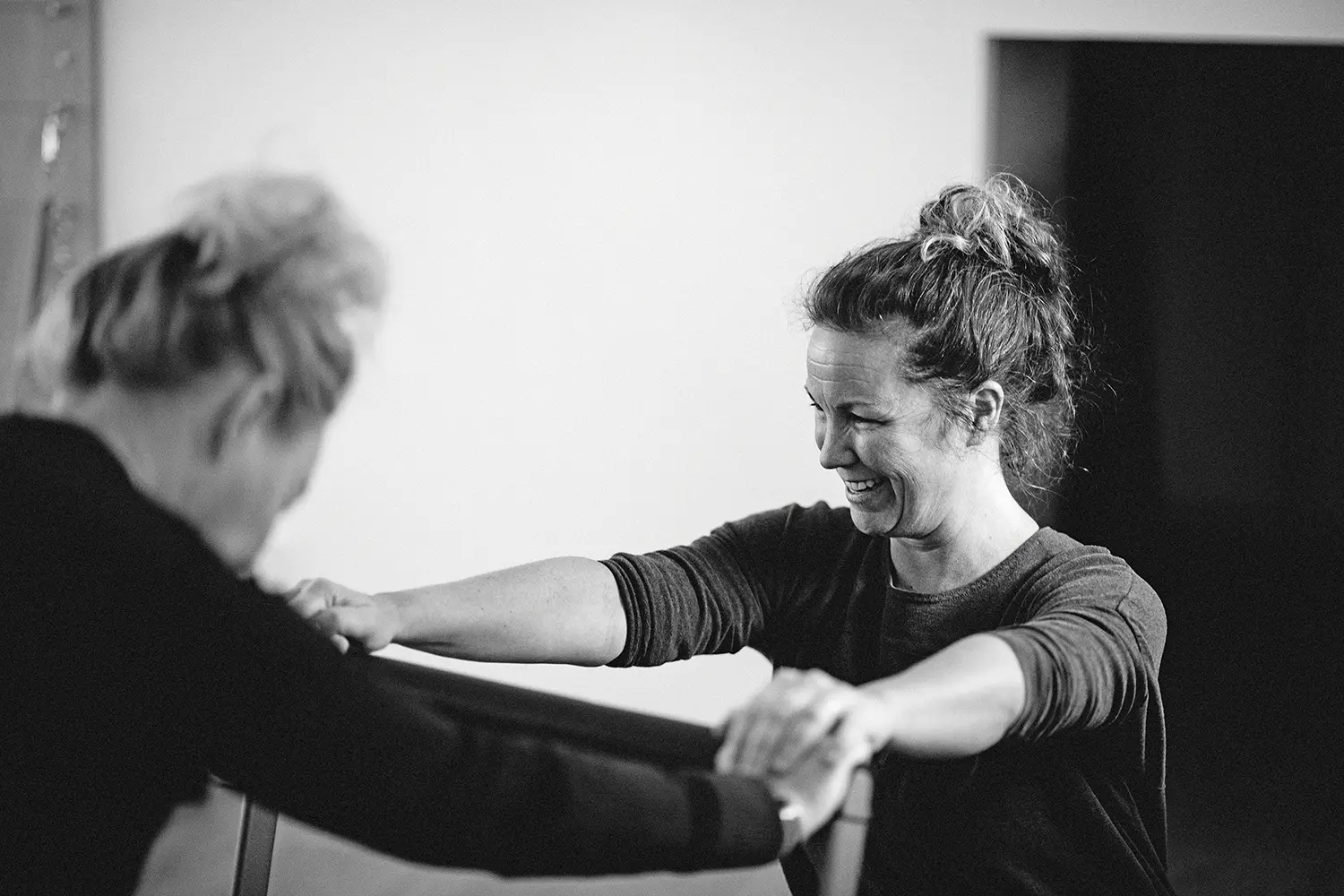
“It is a hustle. And if you’re going to hustle, you might as well hustle for yourself.”
Melissa Enfield, The Schoolhouse Collingwood
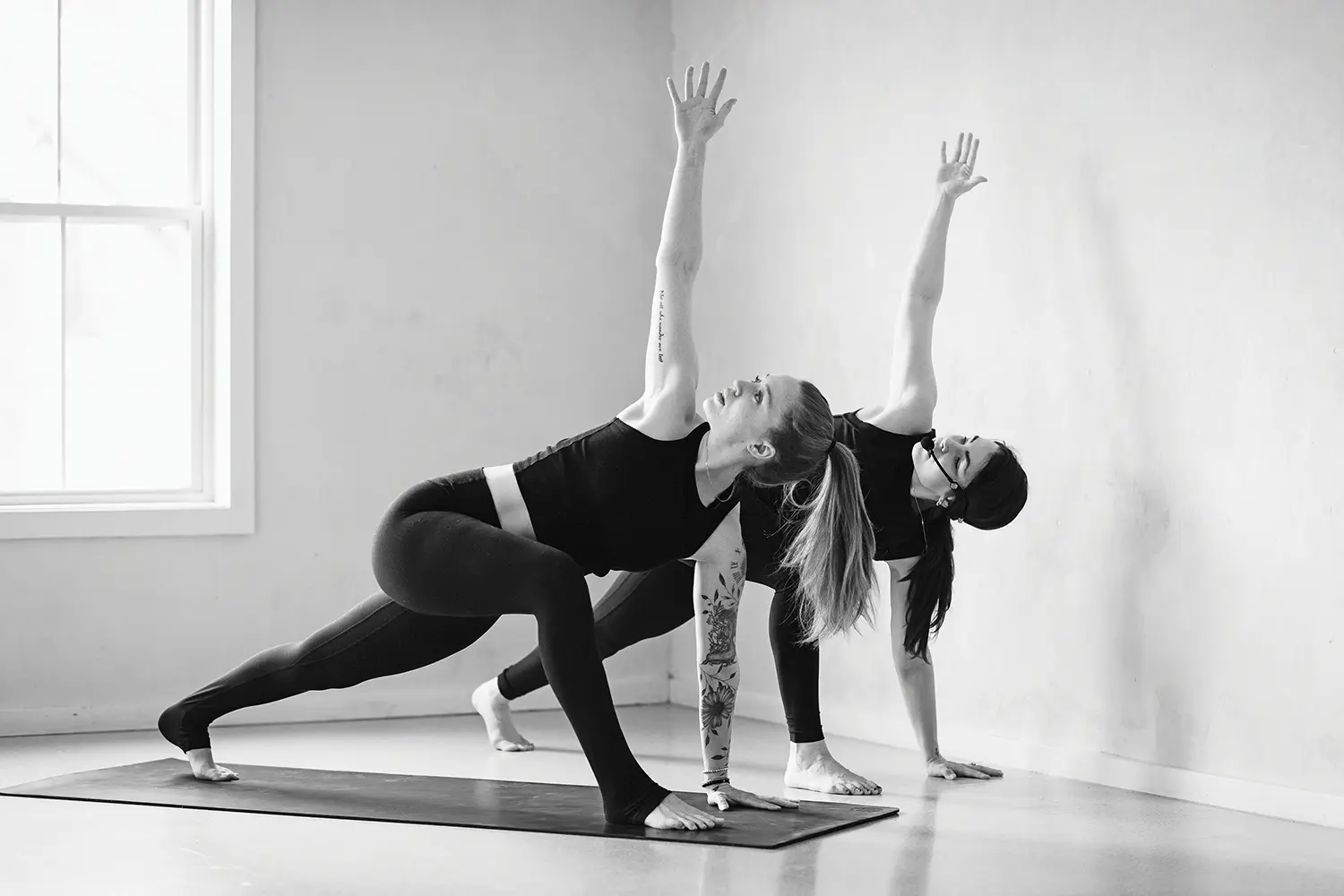
“We want people to come into a class and feel inspired to grow, evolve, stretch—their minds, not just their bodies.”
Ariana Novak, Everlove Healing + Yoga
Stretching the body and mind
Some fitness spaces emphasize healing, growth and community as much as they do exercise—what could be called complete lifestyle optimization. Sure, you can exercise there, but you can also get a holistic facial, join a social group, take an intimacy workshop, sign up for a purpose-finding retreat and leave with an ethically made T-shirt and a package of herbal tea—a one-stop shop for total well-being.
“We want people to come into a class and feel inspired to grow, evolve, stretch—their minds, not just their bodies,” says Ariana Novak, co-founder of Everlove Healing + Yoga in Collingwood.
Everlove feels like a twist on the traditional. Think strength training but in bare feet and with breathwork. Think yoga but with dumbbells and loud music. They even run classes (weather permitting) in their outdoor workout space called “the playground.”
Then there’s the second floor where you’ll find their healing arts. Some are familiar like acupuncture and massage therapy, while others are definitely more unconventional, like tarot card reading and spiritual mediumship. Novak’s hope is that clients will be inspired to explore alternative healing practices.
In fact, inspiration, along with connection, are values the Everlove team actively cultivates. The place has become a community hub. Everlove devotee Ryan Jay says members frequently share words of encouragement before class but also potluck meals together on Friday nights. There are also various retreats, training programs, workshops and social groups to join. Their popular men’s circle, fostering sharing and connection among men, has expanded six-fold to meet demand (see the feature story on page 129).
Everlove member Caitlin Kavander loves that the workouts are both physically challenging while also mentally supportive, but they’re not the only draw. “This is the type of community that I want to be immersed in. It’s the type of energy that I want to surround myself with.”
“I really believe,” says Novak, “that community and movement is a remedy to many of the problems that so many people suffer with.”
